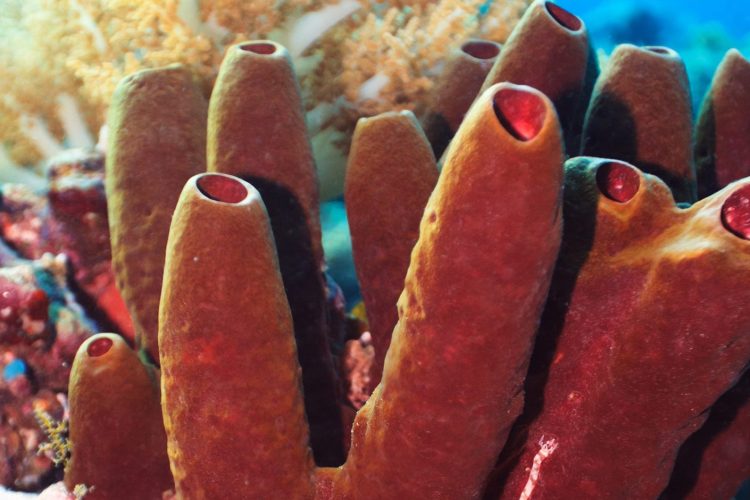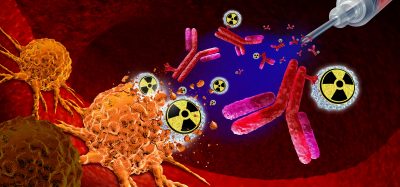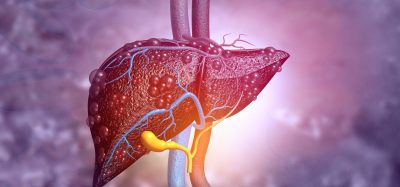Marine sponges could hold the key to new Leishmaniasis treatments
Posted: 25 September 2025 | Drug Target Review | No comments yet
Japanese researchers have discovered potent new compounds from marine sponges that could transform the treatment of leishmaniasis – a neglected tropical disease affecting millions worldwide.


Leishmaniasis, a neglected tropical disease affecting around 12 million people worldwide, could soon see new treatment options thanks to a recent study – published in Marine Biotechnology. Caused by Leishmania protozoa, the disease is characterised by painful skin sores that can develop into deep ulcers and leave permanent scars. It disproportionately affects poor communities – where access to medical care is limited.
Challenges in current treatments
Existing drugs such as antimonial compounds and amphotericin B have their limitations. They often cause serious side effects, are highly toxic and are very expensive, preventing many patients from completing therapy. Drug resistance is also becoming more common and the lack of vaccines and efficient diagnostic tools hinders efforts to control the disease. This leaves healthcare providers with few effective options.


These natural compounds were isolated from a marine sponge species (Theonella sp.) in Okinawa and then shown to have potent activity against the Leishmania major parasite, which often causes a devastating skin disease. Credit: Dr Kanami Mori-Yasumoto from Tokyo University of Science, Japan
Marine sponges yield potential drug candidates
A research team led by associate professor Kanami Mori-Yasumoto from Tokyo University of Science has isolated 10 natural compounds from marine sponges collected in Manza, Okinawa.
Biomarkers are redefining how precision therapies are discovered, validated and delivered.
This exclusive expert-led report reveals how leading teams are using biomarker science to drive faster insights, cleaner data and more targeted treatments – from discovery to diagnostics.
Inside the report:
- How leading organisations are reshaping strategy with biomarker-led approaches
- Better tools for real-time decision-making – turning complex data into faster insights
- Global standardisation and assay sensitivity – what it takes to scale across networks
Discover how biomarker science is addressing the biggest hurdles in drug discovery, translational research and precision medicine – access your free copy today
The compounds, derived from Theonella sponges, belong to a group called onnamides. Laboratory testing discovered several onnamides were highly effective against Leishmania major – a parasite commonly causing skin leishmaniasis. Onnamide A and 6,7-dihydro-onnamide A demonstrated the most promise – showing potency and safety far exceeding current treatments.
New mechanisms and structural insights
Onnamide A appears to combat L. major via a mechanism distinct from amphotericin B, which works by interacting with ergosterol in the parasite’s cell membrane. This could help scientists overcome current drug resistance. The study also found the structure of onnamide G for the first time – which highlighted the structural diversity and potential mechanisms of onnamides.
Safety and broader potential
The onnamides were effective against parasites while sparing human cells due to their low toxicity and high selectivity.
“It may also be possible to apply these compounds to other protozoan diseases, such as Chagas disease and African sleeping sickness,” said Dr Mori-Yasumoto. The compounds may work at low concentrations, potentially reducing treatment time and dosage. However, further analyses are required to confirm cost-effectiveness, in vivo efficacy and in vitro pharmacokinetics before clinical development can begin.
Towards drug development and sustainable production
Ongoing research is evaluating onnamides as lead compounds under the AMED Drug Discovery Booster program, which supports translating promising drug candidates into new medicines. Dr Mori-Yasumoto says: “It may be possible to develop mass-production platforms for onnamide synthesis using modern culturing technology and symbiotic bacteria, ensuring a sustainable source.”


This infographic summarizes the treatment of leishmaniasis using natural compounds called onnamides, derived from a marine sponge. Credit: Dr Kanami Mori-Yasumoto from Tokyo University of Science, Japan
Okinawa’s rich marine biodiversity
Dr Tanaka emphasises the significance of Okinawa’s marine landscape as a fruitful and vast resource for discovery: “The seas of Okinawa are home to abundant world-class biological resources. In this study, we discovered anti-leishmanial active compounds from marine sponges – treasures of the ocean – that have the potential to surpass existing drugs. Pathogens are constantly evolving, and drug resistance is an unavoidable issue. To save future patients, we are determined to continue our research in search of new ‘seeds of medicine.'”
A step forward in global health
The scientists hope that this study will be a crucial step in addressing leishmaniasis and other parasitic diseases, providing relief to millions of people suffering.
“This research is the first step in bringing new treatment options to patients around the world and represents a significant milestone in Japan’s contribution to research on neglected tropical diseases,” said Dr Mori-Yasumoto.
Related topics
Disease Research, Drug Discovery, Drug Discovery Processes, Drug Leads, Drug Targets, Therapeutics
Related conditions
Leishmaniasis
Related organisations
Tokyo University of Science








